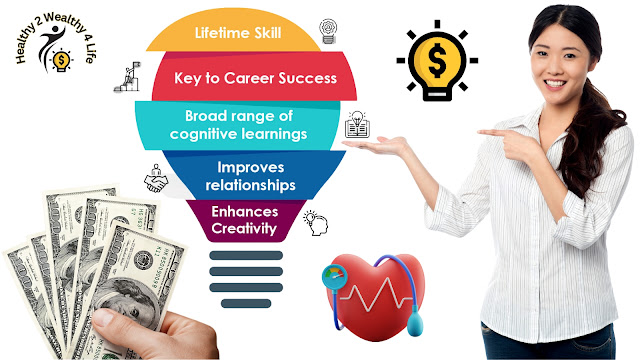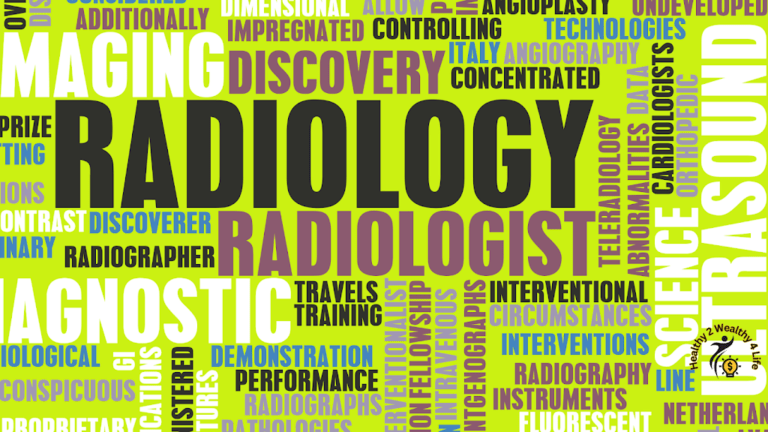Healthy 2 Wealthy 4 Life | Embracing Wellness for a Prosperous Future
Healthy 2 Wealthy 4 Life | Embracing Wellness for a Prosperous Future, Are you ready to embark on a journey from health to wealth? Welcome to “Healthy 2 Wealthy 4 Life” your comprehensive guide to transforming your well-being into a prosperous and fulfilling life. In this article, we’ll delve into the crucial connection between health and wealth, exploring how a holistic approach to wellness can lead to financial success and an enriched life. Let’s dive in and discover the secrets to living a thriving, healthy, and wealthy life.
 |
| Healthy 2 Wealthy 4 Life Embracing Wellness for a Prosperous Future |
Table of Contents
- Introduction: The Interplay of Health and Wealth
- Prioritizing Physical Wellness for Financial Gains
- Exercise: Your Pathway to Productivity
- Balanced Nutrition: Fueling Your Success
- Quality Sleep: A Wealthy Mind Starts Here
- Mental Health: The Foundation of Prosperity
- Stress Management: Navigating Challenges Smoothly
- Cultivating Positivity: The Wealth Magnet
- Building Wealth Through Career and Education
- Investing in Skills: Your Professional Capital
- Entrepreneurial Endeavors: Nurturing Ideas to Wealth
- Relationships and Networking: Your Social Wealth
- The Power of Authentic Connections
- Networking: Where Health Meets Wealth
- Balancing Time: The Ultimate Wealth
- Time Management: Achieving More with Less Stress
- Leisure and Hobbies: Fueling Creativity and Innovation
- Giving Back: The Wealth of Contribution
- Acts of Kindness: Enriching Your Soul
- Philanthropy: Impacting the World and Yourself
- Conclusion: Your Journey from Healthy to Wealthy
Introduction: The Interplay of Health and Wealth
Welcome to the intersection of health and wealth, where a harmonious balance can lead to a life of abundance and fulfillment. Contrary to common belief, health and wealth are not isolated concepts; they are intricately linked, each supporting and enhancing the other. As we embark on this journey of transformation, we’ll explore how prioritizing physical and mental well-being lays the foundation for financial success.
Prioritizing Physical Wellness for Financial Gains
Exercise: Your Pathway to Productivity
In the pursuit of wealth, your physical health plays a pivotal role. Regular exercise not only boosts your energy levels and sharpens focus but also enhances your confidence. Engaging in a consistent exercise routine is an investment in your productivity, setting the stage for accomplishing your goals effectively.
Balanced Nutrition: Fueling Your Success
They say you are what you eat, and this holds true on your path from health to wealth. Nourishing your body with a balanced diet provides the essential nutrients needed for optimal cognitive function and sustained energy. By making mindful food choices, you’re setting the groundwork for a prosperous and energetic future.
Quality Sleep: A Wealthy Mind Starts Here
The significance of sleep in your journey cannot be overstated. Adequate sleep not only rejuvenates your body but also enhances your decision-making skills and problem-solving abilities. As you strive for success, remember that a well-rested mind is a wealthy mind.
Mental Health: The Foundation of Prosperity
Stress is a common companion on the road to success, but how you manage it can make all the difference. Prioritizing stress-reduction techniques such as meditation, deep breathing, and mindfulness empowers you to tackle challenges with a clear and focused mind.
Cultivating Positivity: The Wealth Magnet
A positive outlook is a powerful asset. Cultivating gratitude and optimism not only improves your mental health but also attracts opportunities and like-minded individuals. Your positivity becomes a magnet for the wealth and success you seek.
Building Wealth Through Career and Education
Investing in Skills: Your Professional Capital
Continual learning and skill development are instrumental in wealth accumulation. By investing in yourself through education and acquiring new skills, you’re positioning yourself for career growth and financial prosperity.
Entrepreneurial Endeavors: Nurturing Ideas to Wealth
For those with an entrepreneurial spirit, turning innovative ideas into reality can pave the way to riches. Embracing calculated risks, learning from failures, and persistently pursuing your vision are key components of entrepreneurial success.
Relationships and Networking: Your Social Wealth
The Power of Authentic Connections
Human connections are invaluable treasures on your journey. Building genuine relationships fosters emotional well-being and opens doors to collaborations that can propel you towards both personal and financial triumphs.
Networking: Where Health Meets Wealth
Networking isn’t just about exchanging business cards; it’s about forging meaningful connections. Attending industry events and cultivating relationships in your field can lead to opportunities you might not have encountered otherwise.
Balancing Time: The Ultimate Wealth
Time Management: Achieving More with Less Stress
Efficient time management is the bridge between productivity and balance. Prioritizing tasks, setting boundaries, and making time for self-care are essential strategies for maximizing your daily accomplishments without sacrificing well-being.
Leisure and Hobbies: Fueling Creativity and Innovation
Engaging in leisure activities and hobbies isn’t frivolous; it’s a way to recharge your creative batteries. Allowing yourself moments of enjoyment nurtures your imagination and innovation, qualities that are integral to wealth creation.
Giving Back: The Wealth of Contribution
Acts of Kindness: Enriching Your Soul
Generosity has a ripple effect, enriching both the giver and the recipient. Acts of kindness not only contribute to your spiritual wealth but also create a positive impact on your overall well-being.
Philanthropy: Impacting the World and Yourself
Engaging in philanthropic endeavors aligns with the principle of giving back. By supporting causes close to your heart, you not only contribute to positive change but also experience a profound sense of fulfillment that money alone cannot provide.
Conclusion: Your Journey from Healthy to Wealthy
As we conclude our journey from health to wealth, remember that every choice you make in favor of your well-being has the potential to enrich your life. By prioritizing physical health, nurturing mental well-being, investing in skills, fostering relationships, managing time effectively, and giving back, you are creating a roadmap to a life that’s both prosperous and fulfilling.
FAQs
1. How can I balance a demanding career with maintaining good health?
Balancing a busy career and good health requires effective time management, regular exercise, and stress-reduction techniques. Prioritizing self-care is essential to sustaining long-term success.
2. What role does positivity play in wealth accumulation?
Positivity is a catalyst for attracting opportunities and maintaining resilience in the face of challenges. A positive mindset can lead to innovative thinking and a proactive approach to wealth-building.
3. How can I start giving back, even if I’m not financially wealthy yet?
Giving back doesn’t necessarily require financial wealth. Acts of kindness, volunteering, and supporting local initiatives are meaningful ways to make a positive impact on your community.
4. Is networking only beneficial for career growth, or can it contribute to overall wealth?
Networking extends beyond career growth; it can enhance your social wealth, leading to collaborations, partnerships, and opportunities that contribute to both personal and financial enrichment.
5. Why is sleep considered important for success?
Quality sleep is essential for cognitive function, decision-making, and emotional well-being. A well-rested mind is better equipped to navigate challenges and make sound choices on the path to success.
#healthy #healthyfood #healthyrecipes #wealthy #wealthylife #forlife #life #exercise #nutrition #nutritiondiet #diet #food
6.What can I do, to become a wealthy, healthy man?
To become a wealthy, healthy man, consider these key steps:
-
Set Clear Goals: Define financial and health objectives to guide your actions.
-
Continuous Learning: Invest in education and stay curious to enhance your knowledge and skills.
-
Financial Management: Budget expenses, save consistently, and explore diverse income sources.
-
Smart Investments: Learn about various investment options and make informed choices.
-
Balanced Diet: Consume whole foods, lean proteins, and plenty of fruits and vegetables.
-
Regular Exercise: Incorporate physical activity into your routine for vitality and longevity.
-
Stress Management: Practice relaxation techniques to maintain mental well-being.
-
Adequate Sleep: Prioritize sleep for physical and mental recovery.
-
Positive Relationships: Surround yourself with supportive individuals for emotional health.
-
Time Management: Efficiently balance work, personal life, and self-care.
Remember, gradual progress is key. Small consistent efforts will lead to substantial results over time, fostering both wealth and health.
7Why should we prefer the length of a happy and healthy life than a wealthy life?
8 .Is it possible to be a king without being healthy?
Pros:
Public Health: Encouraging healthier eating can reduce obesity, chronic diseases, and associated healthcare costs, benefiting society as a whole.
Education: Mandates can accompany education about nutrition, helping individuals make informed choices.
Social Responsibility: Addressing health issues collectively is responsible, considering the strain on healthcare systems.
Cons:
Autonomy: Forcing dietary choices infringes on personal autonomy and freedom to make individual decisions.
Effectiveness: Mandates might not lead to genuine behavioral change, as habits are influenced by various factors.
Stigma: Coercion could stigmatize those unable to comply due to socioeconomic constraints.
Balanced Approach:
Education: Prioritize education and awareness campaigns that empower individuals to make healthier choices voluntarily.
Accessible Options: Make healthier choices affordable and accessible, reducing barriers to entry.
Incentives: Implement positive reinforcement through subsidies, tax incentives, or rewards for healthier eating.
Regulation: Use regulation judiciously, such as requiring clear nutritional information on food labels.
Cultural Sensitivity: Respect diverse cultural practices and dietary preferences.
10.What is the theoretical storage capacity of the human brain?
The theoretical storage capacity of the human brain is a topic of ongoing scientific exploration. While it’s challenging to provide an exact figure, here’s an overview:
The human brain’s storage capacity is often likened to a vast and complex network of connections between neurons. Neurons can form trillions of synapses, which are the connections through which they communicate. Each synapse can represent a piece of information, a memory, or a skill.
Estimates vary, but some researchers suggest that the brain’s synaptic capacity might range from 1 to 2.5 petabytes (1 petabyte = 1 million gigabytes). However, it’s important to note that this estimate is based on a simplified model and doesn’t account for the brain’s intricate organization, the variability in neuron types, or the complexity of memory encoding.
Moreover, the brain’s storage isn’t a static number; it’s dynamic and adaptable. The brain can create new connections, strengthen existing ones, and even prune unused ones, a process known as synaptic plasticity.
In essence, while it’s fascinating to speculate about the brain’s storage capacity, the exact number remains elusive due to the brain’s extraordinary complexity and the limitations of current scientific understanding.
11.Is papaya good or bad during menstruation?
Papaya is often considered a controversial fruit to consume during menstruation. Here’s a balanced perspective:
Benefits:
-
Natural Enzymes: Papaya contains papain, an enzyme that may help in easing menstrual cramps and muscle discomfort.
-
Rich in Nutrients: Papaya is rich in vitamins, minerals, and antioxidants that can support overall health, including during menstruation.
Considerations:
-
Uterine Contractions: Some believe that papain could lead to uterine contractions, which might be concerning for pregnant individuals but less relevant during menstruation.
-
Individual Responses: People’s reactions to foods vary. While some may experience relief from consuming papaya, others might not notice any difference.
Precautions:
-
Moderation: If you decide to consume papaya during menstruation, do so in moderation to avoid potential side effects.
-
Allergies or Sensitivities: Be cautious if you have allergies or sensitivities to papaya, as adverse reactions can exacerbate discomfort.
Summary:
Ultimately, the decision to include papaya in your diet during menstruation depends on personal preference and how your body responds to it. If you’re unsure, consider consulting a healthcare professional before making any significant dietary changes.
12.What steps can individuals take to maintain a healthy lifestyle without resorting to extreme measures or fad diets?
To maintain a healthy lifestyle, focus on balanced eating by incorporating whole foods like fruits, vegetables, lean proteins, and whole grains. Stay hydrated, engage in regular physical activity you enjoy, and prioritize 7-9 hours of sleep. Manage stress through relaxation techniques, cultivate a supportive social circle, and practice mindful eating. Avoid fad diets and extreme measures; instead, make gradual, sustainable changes to your habits. Limit processed foods, sugary snacks, and excessive alcohol. Consistency is key, and consulting a healthcare professional before any major changes is wise. Prioritizing moderation, variety, and holistic well-being leads to lasting health.
13.What are the symptoms of having low testosterone?
Low testosterone symptoms include reduced libido, erectile dysfunction, fatigue, mood changes (irritability, depression), decreased muscle mass, increased body fat (especially around the abdomen), loss of body hair, decreased bone mass, hot flashes, and disrupted sleep patterns. These symptoms can vary in severity and may be caused by other factors. Consulting a healthcare professional is recommended for accurate diagnosis and appropriate management.
14.What are some signs and symptoms of a congenital heart defect?
Signs of congenital heart defects include cyanosis (bluish skin), rapid breathing, poor feeding, fatigue in infants. Older children might have shortness of breath, limited exercise tolerance, fainting, and swelling. Heart murmurs, abnormal rhythms, and growth issues can also occur. Timely medical evaluation is essential for diagnosis and management.
15.What are the effects of mold on health?
Mold exposure can lead to respiratory issues like coughing and wheezing, allergic reactions such as runny nose and skin rashes, worsened asthma symptoms, and in rare cases, fungal infections. Mycotoxin-producing molds may cause toxic effects, including headaches and fatigue. Severe cases can result in hypersensitivity pneumonitis or neurological symptoms.
16.What happens if you eat too much food at once?
Extreme fatigue has become increasingly prevalent in the modern era due to various factors. Sedentary lifestyles, digital overstimulation, and work-related stress are among the primary contributors to this phenomenon. With one in four adults failing to meet recommended physical activity levels and excessive screen time affecting sleep quality, it’s evident that our way of life plays a significant role.
To address extreme fatigue effectively, consider several key solutions:
-
1. Regular Exercise:
-
Encourage physical activity even in small doses to boost energy levels.
-
2. Digital Detox:
-
Implement screen time boundaries, particularly before bedtime, to improve sleep quality.
-
3. Stress Management:
-
Promote mindfulness practices and yoga to mitigate work-related stress.
-
4. Balanced Diet:
-
Emphasize nutrient-rich foods to combat deficiencies linked to fatigue.
-
5. Sleep Hygiene:
-
Advocate for consistent sleep schedules and conducive sleep environments.
Addressing extreme fatigue yields several advantages, including enhanced productivity, improved health, and a better quality of life. However, resistance to change and the time commitment required can pose challenges.
In our fast-paced world, it’s crucial to prioritize these solutions to mitigate the adverse effects of extreme fatigue. Please share your thoughts and experiences on this topic and like and share this post if you found it helpful.

